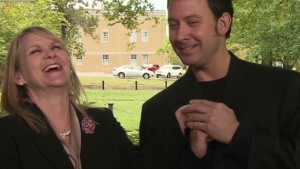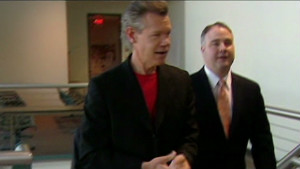Thought you might enjoy having a bash. (If you don't know, don't bother reading any further).
FIVE SONGS WHERE THE BEATLES SUCKED
There is much about the Beatles that’s easy to love. The ornate pop, the long-haired peaceability, the arguments over which one’s your favorite. Still, lend them your ear and you’ll discover a few duds.
Even a group as talented, and successful, as the Fab Four couldn’t help but round out a handful of albums with what could only charitably be called filler. Heck, they even had a few charttoppers that might qualify. (Yes, we’re looking at you “Hello, Goodbye.”)
In compiling our list of the worst offenders, we tried to stay away from easy targets. So, none of their earliest stuff. No Ringo Starr, either. We also left off experimental verite-rock tracks like “Revolution No. 9,” “You Know My Name (Look Up The Number)” and “What’s The New Mary Jane,” which weren’t really songs per se.
What remains is the stuff that didn’t quite make their hall-of-fame resume — the ones where they took a bad song … and made it worse. Our S. Victor Aaron and Nick DeRiso investigated:
THE LONG AND WINDING ROAD (LET IT BE, 1970)
Beatles songs themed on the word “long” are bad karma — but more on that in a minute. This syrupy ballad was a favorite for senior proms at least into the 1980s, sending everyone hurtling into morbidly depressive states — and thus permanently halting generations of young men at first base. (Damn you, DJ!) Even at three-and-a-half minutes, it seemed to be overly long and, yes, winding. (Heck, the Beatles damned near fell asleep playing it. Don’t believe us? Just look at the video.) Producer Phil Spector, in a move that McCartney said precipitated the breakup of the Fabs, later came in and added 18 violins, four violas, four cellos, three trumpets, three trombones, two guitars and a choir of 14 women to the song.
Nick DeRiso: McCartney’s showy complaints about the Spector-ization of this track are funny even now, considering how many of his later songs had armies of violins, trumpets, girls, and so on.
S. Victor Aaron: Spector should have gone to jail much sooner for the heavy-handed way he polished this turd of a song. Paul wanted to kick his ass for that, but it’s his own fault for laying this turd in the first place.
Nick DeRiso: Loved Phil’s comeback to this harrumphing: “Paul had no problem picking up the Academy Award for the Let It Be movie soundtrack, nor did he have any problem in using my arrangement of the string and horn and choir parts when he performed it during 25 years of touring on his own. If Paul wants to get into a pissing contest about it, he’s got me mixed up with someone who gives a shit.”
ALL YOU NEED IS LOVE (MAGICAL MYSTERY TOUR, 1967)
Composed for the first globally televised live event via satellite, “All You Need Is Love” has the wafer-thin depth and tinny feel of, well, a TV theme song. It’s perhaps of little surprise to learn that the Beatles didn’t sit down to work on the song until a scant 11 days before the broadcast. Falling back on his penchant for sloganeering, Lennon — who once said “I like slogans. I like advertising. I love the telly” — simply threw out a series of sayings, then gussied it up with effects, including snippets of the French national anthem and their early hit “She Loves You.”
S. Victor Aaron: Everyone tends to give songs from ’67 a pass for the hippy-trippy lyrics but we have to draw a line somewhere and John crossed it: “There’s nothing you can do that can’t be done/Nothing you can sing that can’t be sung. Nothing you can say but you can learn how to play the game/It’s easy.” Yes, it’s easy indeed … to write trite prose. He credited his then-four-year-old-son Julian for inspiring “Lucy In The Sky With Diamonds,” but it wouldn’t have surprised me if young Jules also wrote the words for “All You Need Is Love,” too.
Nick DeRiso: This arrived amid a startlingly uneven period for Lennon, who was just as capable of kaleidoscope brilliance (“A Day In the Life,” “Strawberry Fields Forever”), as he was a number of under-cooked, cliche-riddled throwaways like “Good Morning, Good Morning,” “Baby, You’re a Rich Man” and this overplayed snoozer. Backed up against the wall by a deadline, Lennon followed more than he led — echoing the themes of that summer rather than coming up with something original.
S. Victor Aaron: And then as the song drifted off into lala land, who was being the ass clown mocking their earlier hits? Yeah, that’s right, Paul.
LONG, LONG, LONG (WHITE ALBUM, 1968)
Inspired musically by “Sad Eyed Lady of the Lowlands,” the final track on Bob Dylan’s celebrated Blonde On Blonde album, this one actually had potential — but the muddled production (was George Martin on a smoke break?) sunk the song. First, Ringo’s too-up-front fills disrupt what little flow the song has, then there’s Harrison’s faint, echoing vocal, and finally a rattling bottle of Blue Nun wine on top of a Leslie speaker cabinet to end things. Maybe this sounded more interesting while baked. It must have.
Nick DeRiso: A wet blanket of a record, it’s as if you’re trapped in a some place dark with a guy who won’t get to the point. Is he in love with some girl? Has he found God? Can he speak the hell up? Everything about it seems claustrophobic, save for Ringo’s smashingly out-of-place fills.
S. Victor Aaron: The tune goes straight to the bottom in the last 30 seconds as George gets freaky and emits “ahhhhhhhh” as the song comes to messy end. But I can relate to him. Every time I hear this song, I want to cover up my ears and yell “ahhhhh” so I can tune it out.
Nick DeRiso: When ever I think I’m completely sick of this song, I think about the interminable sessions. The odd waltz time here forced the self-taught Beatles to go through an astonishing 67 takes to complete the rhythm track. (Talk about long … long … LONG!) That’s about 60 more times than I’ve listened to this song.
MAXWELL’S SILVER HAMMER (ABBEY ROAD, 1969)
Nothing like a jaunty little tune about a homicidal maniac to spark up an album, eh? Convinced somehow that this could be a hit anyway, McCartney, and a rotating group of his hapless bandmates, somehow spent three days — three days! — recording this track. “He did everything to make it into a single,” Lennon said years later, “and it never was — and it never could have been.” Bang bang!
S. Victor Aaron: Paul can get awfully damned silly at times but never more than he did here. The original meaning of the term “hammer time” was a story about … ah screw it, it’s not even worth getting into.
Nick DeRiso: When Paul sings the line “writing 50 times, ‘I must not be so-oh-oh-oh,’” he can be heard cracking up — reportedly, because Lennon had mooned him during the previous verse, which ends “so he waits behind.” All of that is funnier than anything that actually happens here. A pothole on the otherwise superlative Abbey Road.
S. Victor Aaron: Give it to Paul, though: This was the first recorded instance that a synthesizer was used in a cringe-inducing song. Awful prog rock owes a huge debt to Macca.
BLUE JAY WAY (MAGICAL MYSTERY TOUR, 1967)
Another Harrison clusterfuck. Written while George was bored stiff waiting for his publicist to arrive at a house he was renting on Blue Jay Way in Los Angeles — and it shows. Befitting the times, the tune employs all manner of effects — copious flanging, vocal processing, backwards playbacks fading in and out. None of it distracts from the essential ennui of this deeply uninteresting jetlagged dirge.
S. Victor Aaron: The song is creepy and trippy but not at all in the right ways. George’s voice sounds like it was run through a Leslie speaker by way of a Hammond B-3 and the droning “please don’t be very long” is grating enough. But, no, this had to supplemented by a second droning voice repeating that insipid phrase out of tune.
Nick DeRiso: What bitter irony, the way George keeps repeating the phrase please … don’t … be … long. Too late. This song is the Energizer bunny of bad Beatles songs: It just keeps going and going and going. And going. You feel sorry for those poor bastards playing the cello.
S. Victor Aaron: Psychedelic music, like psychedelic drugs, had good trips and bad trips. This was a trip to musical hell.
Okay, let's skip the predictable apologist and/or advocate approach of defending any or all of these songs.
And let's not debate unnecessarily, agreeing to agree that any kind of list automatically falls into the category of "one man's treasure is another man's trash".
And let me simply offer this.
It's a fun read, if you're a Beatle fan with even a speck of a sense of humor, it's a validating read if you're not a Beatle fan and, in either case, I'd offer you that, if only unintentionally, misses the point of what The Beatles were all about.
Simply put, in the day, they could do no wrong.
Whether or not they should have, rightly or wrongly, been called on it.
When, in hindsight, I think anyone can see/hear their fallibility.
Put another way...
Let's all get back together in forty five years and have a bash at Taylor Swift. (If you don't know, don't bother showing up.)








